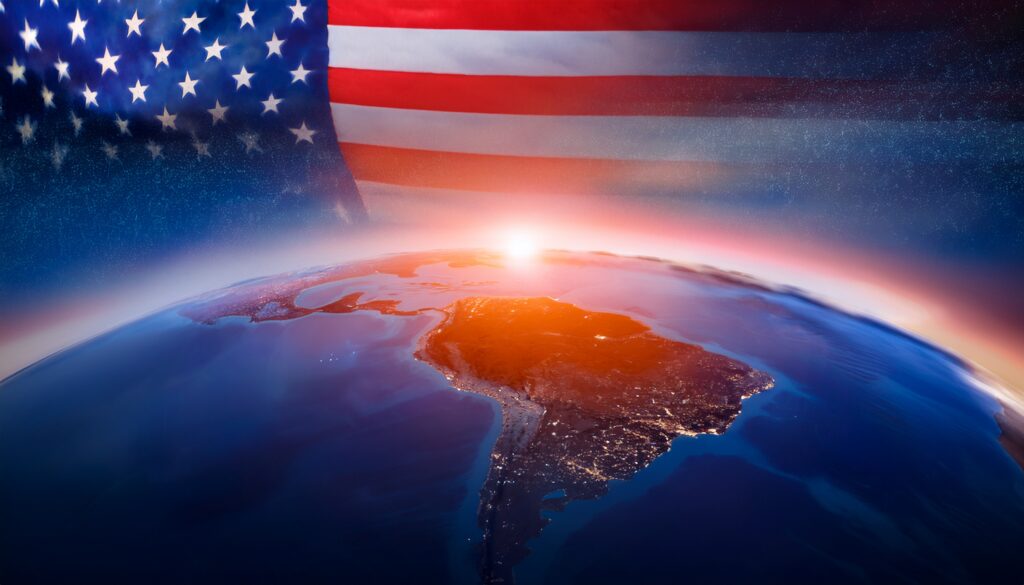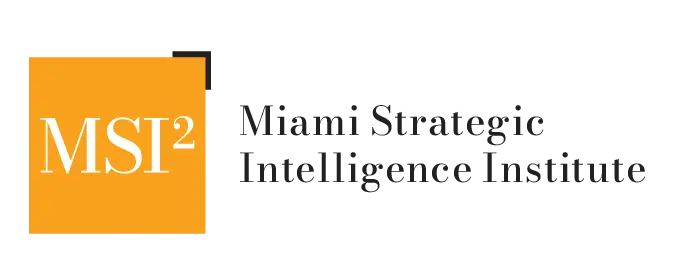01 May America’s Diplomatic Reset: Inside Rubio’s Bold First 100 Days
By,
Jesús Daniel Romero, Co-Founder and Senior Fellow, MSI²
Marco Rubio’s appointment as the 72nd United States Secretary of State on January 21, 2025, marked a defining moment in American diplomacy. As the first Hispanic American to hold the position, Rubio entered office under immense political pressure and amid an unstable global order.
It’s worth noting that on May 1, President Donald Trump announced that Rubio would also serve as acting national security advisor, another position that reflects the current administration’s confidence in the head of US diplomacy.
With crises unfolding in Eastern Europe, the Middle East, and Latin America, Rubio faced a daunting challenge: to restore America’s strategic leadership while overhauling a bureaucracy often accused of stagnation. In just 100 days, his actions — bold, controversial, and deeply consequential — have reshaped both the mission and machinery of U.S. foreign policy (Psaledakis et al., 2025).
Global Crises and Strategic Posture
Rubio’s diplomatic debut came at a critical inflection point in the Russia–Ukraine war. Within weeks, he traveled to Ankara and Doha to facilitate backchannel talks between Kyiv and Moscow. Although a formal agreement remains elusive, his proposal for a neutral-but-sovereign Ukraine opened space for renewed negotiations and eased the tempo of military escalation.
In Asia, Rubio balanced deterrence and diplomacy. He authorized joint Navy and Coast Guard deployments near Taiwan and increased foreign military financing for key Indo-Pacific allies. Meanwhile, in the Middle East, his response to Houthi attacks on shipping lanes included intelligence sharing and coalition-building — actions that reinforced maritime security without direct U.S. entanglement.
Restructuring the State Department
One of Rubio’s most ambitious undertakings has been the aggressive restructuring of the State Department. Declaring the agency “bloated, outdated, and misaligned,” he initiated a phased reduction of 15% in workforce through voluntary exits, while consolidating over 100 functional bureaus into a streamlined command structure. A newly created Strategic Hemispheric Directorate now manages Western Hemisphere policy, intelligence coordination, and counter-cartel diplomacy.
Rubio also curtailed internal diversity and equity initiatives, redirecting resources to cyber diplomacy, disinformation countermeasures, and frontline diplomatic security. While praised by reformers, critics argue that these moves risk hollowing out institutional expertise. Rubio counters that “mission over ideology” is the only way forward.
Latin America: Priorities and Realignments
No region has seen more immediate shifts under Rubio than Latin America. Leveraging his decades-long focus on the hemisphere, Rubio:
- Reinvigorated U.S.–Colombia cooperation to interdict narco-submarines and degrade the cocaine supply chain at sea and in the Darién Gap.
- Supported El Salvador and Guatemala with joint law enforcement task forces aimed at dismantling transnational gangs.
- Reimposed sanctions on Cuba’s GAESA conglomerate and on Venezuela’s Cartel de los Soles, while suspending immigration interviews for nationals suspected of gang affiliation — including those tied to Tren de Aragua.
His Latin America doctrine is unapologetically firm: American security is linked to hemispheric order, and that order begins with rule of law.
Confronting China in the Americas
Rubio has made countering Chinese influence a central pillar of his Western Hemisphere strategy. He has repeatedly warned that Beijing’s growing economic footprint — including control over strategic ports, energy infrastructure, and digital networks — poses a long-term threat to regional sovereignty and U.S. interests.
In March, Rubio dispatched a diplomatic team to Panama to meet with Canal Authority officials and raise concerns over Chinese investment proposals linked to canal-adjacent logistics hubs. He has publicly opposed the leasing of sensitive infrastructure to Chinese state-owned enterprises and called for a regional “infrastructure security framework” to vet foreign-backed development deals.
Rubio has also pushed to expand alternatives to China’s Belt and Road Initiative by reviving stalled U.S. development finance tools, offering countries in Central America and the Caribbean pro-democracy conditional aid packages tied to digital transparency and trade diversification.

A New Human Rights Doctrine
Departing from multilateralist ambiguity, Rubio has centered religious freedom, dissident protection, and internet liberty as core U.S. values. In a symbolic break from recent predecessors, he hosted Iranian, Cuban, and Chinese dissidents during his first month in office. He has linked foreign assistance to media freedom benchmarks and has sharply criticized European allies for so-called “hate speech” legislation that stifles political opposition.
Conclusion: Strategic Clarity in an Age of Drift
In 100 days, Marco Rubio has redefined what it means to be America’s top diplomat. His strategy — unapologetically realist, values-driven, and deeply hemispheric — marks a sharp departure from recent State Department orthodoxy. Whether history will judge him as a restorer or a disruptor remains to be seen. But one thing is certain: in a time of global disorder, Secretary Rubio has chosen momentum over inertia, and vision over vagueness.
Verdict: Rubio’s first 100 days have been decisive, mission-focused, and bold. While not without critics, his approach has energized U.S. diplomacy with direction and urgency rarely seen in recent years. On balance, his performance earns an 8.5 out of 10 — a high-impact, ideologically assertive, and structurally disruptive beginning to a tenure that could reshape America’s role in the world.
References
Psaledakis, D., Landay, J., & Mohammed, A. (2025). Rubio overhauls State Department amid global uncertainty. Reuters. https://www.reuters.com/world/us/rubio-state-department-overhaul-2025
U.S. Department of State. (2025). Strategic Realignment Briefing – February 2025.
Gonzalez, M. (2025). Rubio’s Latin America doctrine: Strength with conditionality. Foreign Policy.
U.S. Coast Guard. (2025). Interdictions in Eastern Pacific surge under new diplomatic initiatives.
Office of the Spokesperson. (2025). Secretary Rubio Remarks – March 12, 2025.
